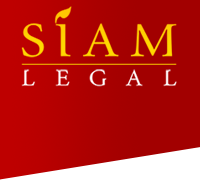Legal Guide To Mergers And Acquisitions In Bangkok

Companies planning to expand operations, acquire a competitor, or restructure their business in Bangkok must go through the mergers and acquisitions process, which is regulated by Thai law. Therefore, these transactions involve legal, financial, and regulatory steps that require careful planning.
Failure to comply with Thailand’s specific laws governing mergers and acquisitions can result in legal disputes or financial losses, so having a good grasp of these regulations is necessary to achieve business success in Thailand.
Steps in Mergers and Acquisitions
A merger in Thailand occurs when two or more companies join together, resulting in one company remaining as the legal entity while the others are dissolved. On the other hand, an acquisition occurs when a company purchases a substantial portion or all of another company’s shares or assets, effectively securing control over that company by holding the majority stake.
Below is an overview of the steps in mergers and acquisitions for businesses in Bangkok:
- Strategy Development: Before starting the merger or acquisition process, companies must define clear objectives and strategies. This includes determining whether the goal is market expansion, gaining access to new technology, or acquiring valuable assets. During this step, conducting in-depth market research is essential to identifying potential targets for merger or acquisition.
- Seek Expert Guidance: Mergers and acquisitions in Bangkok can be intricate, especially for foreign investors. Therefore, it is advisable to work with professionals, such as legal counselors, financial consultants, and tax specialists, to ensure a smooth transaction with minimal risk. Corporate lawyers in Thailand will ensure compliance with the country’s regulations, while financial consultants will evaluate the target company’s value.
- Due Diligence: Conducting due diligence is a fundamental step in any merger or acquisition. This process involves a detailed review of the target company’s financial stability, legal status, operations, and market position. Without this information, the acquiring company will not be aware of all the risks involved and could be making a financial mistake.
- Valuation and Negotiation: A valuation is conducted to determine the target company’s fair market value. This assessment considers assets, liabilities, and the potential for future growth. Once the valuation is established, the negotiation process begins. This typically covers aspects such as price, transaction structure (asset purchase or share purchase), payment terms, and post-transaction conditions.
- Drafting the Agreement: The next step is to draft a detailed merger and acquisition agreement. This document should clearly outline the terms of the deal and must align with Thailand’s laws and industry regulations. The agreement should be drafted and reviewed by a licensed corporate lawyer to ensure it is fair and legally sound.
- Regulatory Approvals: Certain mergers and acquisitions in Bangkok require clearance from regulatory authorities before they can proceed. Approval may be required from the Thailand Board of Investment (BOI), the Competition Commission, the Ministry of Commerce (MOC), the Securities and Exchange Commission (SEC), the Bank of Thailand (BOT), and other relevant industry-specific regulators.
- Closing the Transaction: After obtaining all required regulatory approvals and meeting the conditions outlined in the agreement, the transaction moves to the closing stage. This includes signing the final documents, transferring ownership, and fulfilling financial obligations. Once completed, the integration process begins, and the new corporate structure is implemented.
- Post-Transaction Integration: A successful merger or acquisition depends not only on closing the transaction but also on the seamless integration of both companies. This step includes combining operations, aligning corporate cultures, and communicating changes to employees, customers, and suppliers.
Mergers and acquisitions in Bangkok are subject to strict regulations, demanding meticulous planning and execution. Each stage of the process, from strategic planning to regulatory approvals and post-transaction integration, plays a huge role in achieving a successful outcome.
To minimize risks and maximize the advantages of a merger or acquisition transaction in Bangkok, it is recommended to retain the services of both a legal expert and a financial professional.
Due Diligence Process
Similar to purchasing property in Thailand, conducting thorough due diligence is an important part of the process for mergers and acquisitions in Bangkok, as it will verify key details of the target company (such as its legitimacy as a business and any encumbrances) and assess its potential risks. Due diligence for mergers and acquisitions includes:
- Corporate Due Diligence: This includes verifying corporate documents; reviewing contracts and the legality and status of the company; checking for outstanding litigation cases, business licenses, and shareholding structure; and ensuring compliance with corporate laws in Thailand.
- Financial Due Diligence: This includes reviewing financial statements, tax filings, the financial status of the company, and debts to assess the financial health of the target company.
- Operational Due Diligence: This includes analyzing the company’s business model, assets, intellectual property, and workforce to determine long-term sustainability.
- Regulatory Due Diligence: This includes verifying that the company complies with Thai law and regulations, including licensing and foreign ownership restrictions.
Without a thorough due diligence process, companies risk inadvertently taking on hidden liabilities that could lead to financial and legal complications. For this reason, hiring a local corporate lawyer to conduct due diligence is a must. An effective legal counsel will safeguard investments and provide valuable insight to the target company, leading to a more secure and well-informed transaction.
Role of Corporate Lawyers in Negotiations
In merger and acquisition negotiations, corporate lawyers provide legal guidance that will help protect business interests, as well as ensure compliance with the laws in Thailand. Their services include:
- Structuring the Deal: Corporate lawyers help determine the most suitable transaction structure, whether through a share purchase, asset acquisition, or full merger. The chosen structure impacts taxation, liability, and regulatory approval requirements.
- Negotiating Agreements: They can also help negotiate favorable terms, securing contracts that protect the company’s interests while minimizing potential risks.
- Drafting Contracts and Legal Documents: Corporate lawyers will prepare contracts that outline the transaction structure, closing conditions, and confidentiality clauses, among several other things.
- Regulatory Compliance: Licensed business lawyers are needed to check if the target company adheres to Thailand’s corporate laws and their related business licenses, which include foreign ownership restrictions, land restrictions, labor laws, and industry-specific regulations.
- Risk Management: Lawyers will identify potential legal risks early in the merger and acquisition process and may provide a Legal Opinion, which will help companies avoid costly disputes, delays, and compliance violations.
Legal Compliance for M&A in Thailand
Thailand maintains strict regulations on mergers and acquisitions to ensure fair competition, prevent monopolistic practices, and protect shareholders. These regulations come in the following forms:
- Civil and Commercial Code: This legal framework sets the foundation for private company law, contract law, and corporate governance standards, such as share acquisitions, business transfers, and contractual obligations between buyers and sellers.
- Public Limited Companies Act: This legal framework regulates shareholding structures, amalgamations, voting rights, and procedures for acquiring controlling interests for publicly traded companies. Amalgamations that involve public corporations require special shareholder resolutions, compliance with corporate governance standards, and transparency regulations.
- Securities and Exchange Act (SEA): This legal framework imposes additional obligations on publicly listed Thai companies, particularly on disclosure requirements for takeovers or significant share accumulations. Once a certain ownership threshold is breached (which is normally at 25%, 50%, or 75%), the acquirer must make a tender offer to all remaining shareholders.
- Competition Act: This legal framework, which is led by the Trade Competition Commission (TCC), prevents mergers from creating monopolies or considerably reducing market competition in Thailand. It is important to note that a market concentration threshold may need to be reviewed by the Trade Competition Commission.
- Foreign Business Act (FBA): This legal framework imposes additional restrictions on foreign investors by limiting non-Thai ownership in sectors such as telecommunications, agriculture, and transportation. Companies operating in these industries must obtain a Foreign Business License (FBL), apply for the US-Thai Treaty of Amity, acquire BOI promotion, or obtain other special permissions that allow foreign businesses to exceed 49% foreign ownership.
- Labour Protection Act: This legal framework safeguards the rights of employees during business transfers by ensuring that the employee transfers to the new entity under the same terms unless agreed otherwise. Employers are required to provide advanced notice of transfers, and failure to comply may result in disputes and liabilities.
Following these regulations is crucial to avoiding penalties, legal disputes, and the risk of having a transaction revoked. If there is any uncertainty regarding whether all these legal requirements are being met, it is advised to consult with a corporate lawyer in Thailand.
Professional Assistance with Mergers and Acquisitions in Bangkok
If you’re planning a merger or acquisition in Bangkok, reach out to Siam Legal International. With over 20 years of experience, our team of bilingual corporate lawyers has the knowledge and expertise to guide you through every step of the process, ensuring a legally sound transaction that protects your business interests, minimizes your risks, and maximizes your opportunities for profit.
We will be by your side from the initial due diligence phase to contract negotiations and securing regulatory approvals. Once the transaction is finalized, we will assist in filing the necessary applications with the appropriate government agencies to complete the establishment of your newly structured business. Our team also includes tax consultants who provide insights into financial structuring and compliance, which will help you avoid legal pitfalls and unnecessary tax liabilities.
For a smooth and legally compliant merger or acquisition in Bangkok, do not hesitate to contact Siam Legal to book a consultation!
Category: Blog
About the Author (Author Profile)
Siam Legal is an international law firm with experienced lawyers, attorneys, and solicitors both in Thailand law and international law. This Thailand law firm offers comprehensive legal services in Thailand to both local and foreign clients for Litigation such as civil & criminal cases, labor disputes, commercial cases, divorce, adoption, extradition, fraud, and drug cases. Other legal expertise of the law firm varied in cases involving corporate law such as company registration & Thailand BOI, family law, property law, and private investigation.











